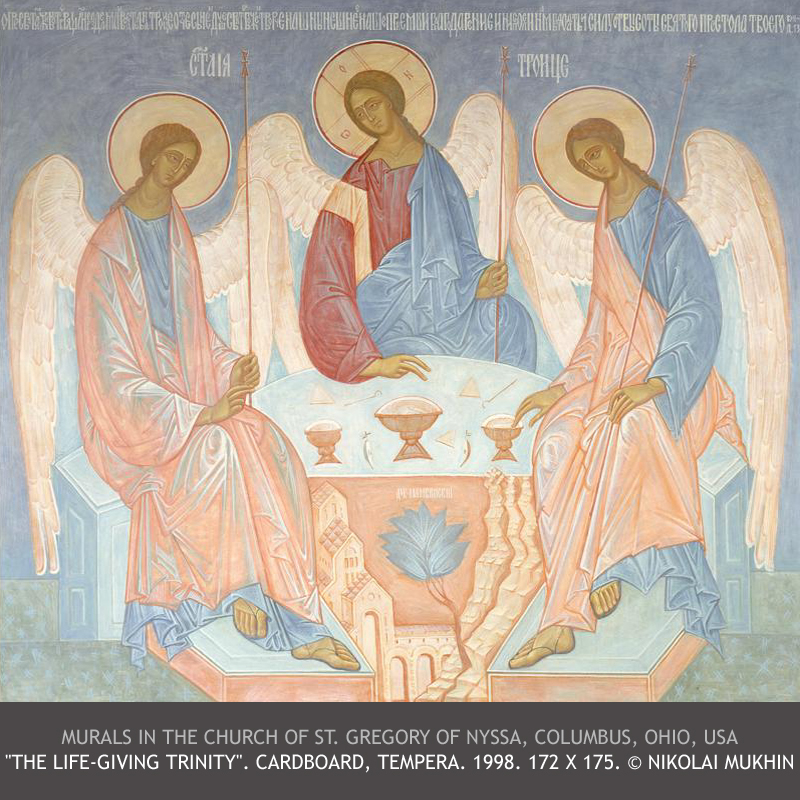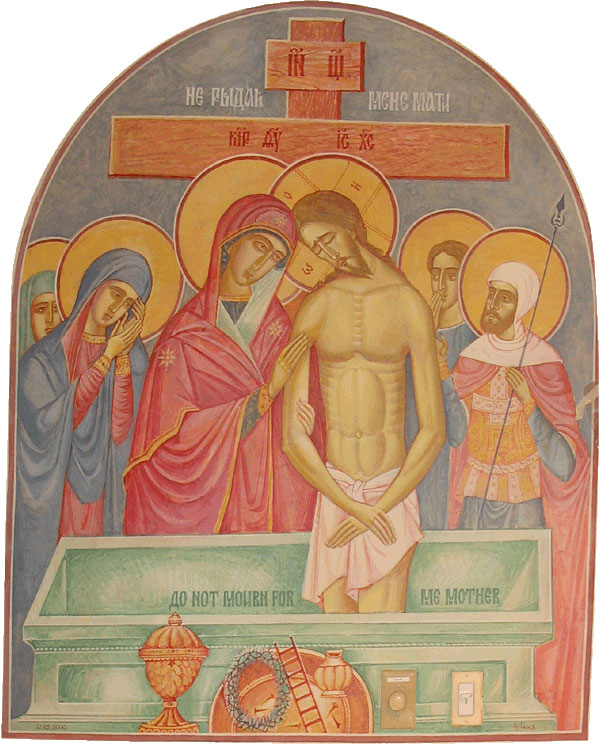From our fathers among the Saints
The Creed-Confession of our Father among the Saints Athanasius, Patriarch of Alexandria.
Whosoever seeks salvation must first of all confess the catholic faith. There is no doubt that if one does not hold this faith in its fullness and purity, one cannot avoid perishing for eternity. Here is this Catholic faith: We worship the one God in Trinity and the Trinity in unity, without confusing the Hypostases and without dividing the Substance. For one is the Hypostasis of the Father, another That of the Son, and another That of the Holy Spirit. But the Divinity of the Father, of the Son and of the Holy Spirit is One, Their Glory is equal and their Majesty coeternal. Such is the Father, such also is the Son and such is the Holy Spirit. Uncreated is the father, uncreated the Son and uncreated the Holy Spirit. Incomprehensible is the Father, Incomprehensible is the Son and incomprehensible the Holy Sprit. Eternal is the Father, eternal the Son, eternal the Holy Spirit: however, there are not three eternal things, but One eternal. Likewise, there are not three uncreated and incomprehensible things, but One alone is uncreated and incomprehensible. Likewise: almighty (Pantocrator) is the Father, almighty the Son and almighty the Holy Spirit: however, there are not three almighty things, but One Almighty. Thus, God the Father, God the Son and God the Holy Spirit, but nevertheless there are not three gods, but One sole God. Likewise: the Father is Lord, the Son is Lord and the Holy Spirit is Lord; however, there are not three lords, but One Lord; Since we have been brought by Christian truth to confess each of the Hypostases as God and Lord; and at the same time catholic piety forbids us from naming three gods and three lords. The Father was not created, made or begotten by anybody. The Son is from the Father, still not created or made, but begotten. The Holy Spirit was not created or made by the Father, but proceeds from Him. One alone is Father and not three fathers. One alone is Son and not three sons. One alone is Holy Spirit and not three holy spirits. And in this Holy Trinity none is first or last. None is greater or less great. But the three Hypostases are whole, coeternal to Each Other and equal. Thus it follows from all that has been said that the Trinity is worshipped in Unity and Unity in Trinity. He who seeks his salvation, let him think in this way about the Holy Trinity.
From “Exposition of the Faith of Saint Maximus, Questions and Brief Responses”
If you want to know what God is and how it is fitting to worship Him, understand and comprehend and truly know the Father, the Son and the Holy Spirit.
If you want to know what God is and how it is fitting to worship Him, understand and comprehend and truly know the Father, the Son and the Holy Spirit. One is holy, one desire, one will, one wisdom and one power. One is not before all ages while Another is within the ages; but the Father, the Son and the Holy Spirit are together. The Son is in the Father the the Spirit is in the Son, together one Nature and one Godhead. This Godhead is divided in Three in the Hypostases, but It is one in substance. This is why, when invoking the Father, in glorifying the Son and in confessing the Holy Spirit, we call upon God, since the divine nature is common to the Father, to the Son and to the Holy Spirit. But the Names of the Father, the Son and the Holy Spirit are not names common to all the Persons, but particular to each of the Hypostases. For the Father is not called Son, the Son is not called Father, and the Holy Spirit is not called Father or Son, but God is always called Trinity. I say three Hypostases, which is to say three Persons, but one image. We do not say: three substances in three Persons; nor three natures, nor three gods as the disciples of the accursed Arius say. But we confess one God, one substance, one nature in Three Hypostases. We do not confess one sole hypostasis like the accursed Sabellians: but we confess, pray to, and worship Three Hypostases, Three Persons in one image and in one sole Godhead.






